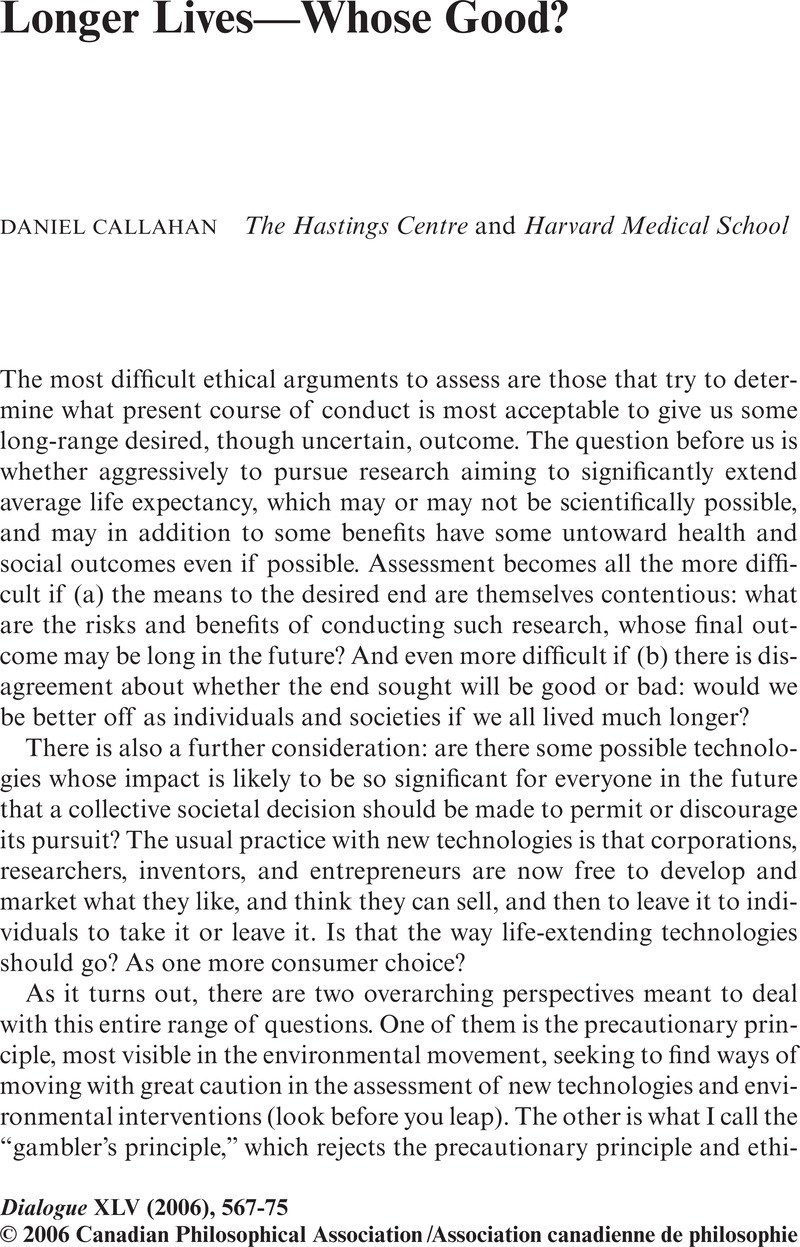Published online by Cambridge University Press: 27 April 2009

1 These categories are more fully developed in Callahan, Daniel, What Price Better Health: Hazards of the Research Imperative (Berkeley, CA: University of California Press, 2003), pp. 129ff.Google Scholar
2 Stock's debate can be found in Stock, Gregory and Callahan, Daniel, “Point-Counterpoint: Would Doubling the Human Life Span Be a Net Positive or Negative for Us as Individuals or as a Society?” Journal of Gerontology: Biological Sciences, 59a, 6 (2004): 554–59.Google Scholar
3 United Nations, World Population Prospects: The 2004 Revision (New York: United Nations, 2005), p. 47.Google Scholar
4 Grant, Jonathan et al. , Low Fertility and Population Aging: Causes, Consequences, and Policy Options (Santa Monica, CA: The Rand Corporation, 2004).CrossRefGoogle Scholar
5 Boulding, Kenneth, “The Menace of Methuselah: Possible Consequences of Increased Life Expectancy,” Washington Academy of Sciences, 55, 7 (03 1965): 171–79Google Scholar; reprinted in the Population and Development Review, 29, 3 (09 2003): 493–504Google Scholar (page references are to this version).